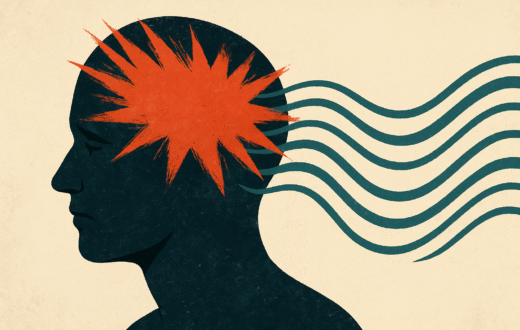Breaking the Cycle of Negative Emotions: How Emotional Awareness Restores Motivation

Feeling trapped in sadness, anxiety, or anger can easily drain your motivation. Instead of acting, you might find yourself sinking deeper into those feelings, unsure how to move forward. Yet understanding how emotions connect to action may be the missing key to breaking that paralysis.
Understanding the Power of Emotional Clarity
A recent study led by Aya Uchida and colleagues at the University of Melbourne (2025) explored the concept of emotional differentiation—the ability to recognize and label one’s emotions precisely. Some people can accurately identify whether they are sad, worried, or angry in a given moment, while others experience emotions as a confusing blur.
Imagine you’ve been trying to contact a close friend who isn’t replying. You might feel sadness from rejection, frustration from being ignored, or anxiety that something’s wrong. Identifying which emotion dominates changes how you respond. Emotional clarity allows you to act purposefully rather than impulsively.
From Emotion to Action
Uchida’s team found that people who are skilled at distinguishing emotions use them more constructively through instrumental motivation—that is, transforming emotion into useful action. Recognizing the root feeling can help you select effective strategies, whether it’s reaching out to others, learning from an experience, or improving yourself.
Participants in the study were tracked for 14 days, receiving random prompts to report their current emotions and the ways they tried to regulate them. They also indicated why they used each coping method—whether to perform better, learn something new, improve relationships, or grow personally.
Those who practiced emotional differentiation were better able to channel even strong negative emotions into purposeful goals. When emotions were intense, clarity became especially powerful, helping individuals find meaning and direction amid discomfort.
Turning Awareness Into Growth
The researchers concluded that emotional precision enables people to focus on one effective coping strategy instead of trying multiple ineffective ones. Returning to the earlier example—if your friend still doesn’t respond—you might realize that giving space, rather than overreaching, reflects maturity and self-growth.
In short, being emotionally precise helps transform pain into progress. It reduces confusion and enhances your ability to act meaningfully. Uchida’s findings show that this capacity works best in the moment, not as a fixed personality trait.
That’s good news: emotional awareness can be developed. You can pause, name your feeling—sadness, worry, anger—and connect it to the event that triggered it. This simple act activates motivation.
Emotional Mastery as a Path to Fulfillment
Breaking free from emotional stagnation isn’t about suppressing what you feel—it’s about using emotion as information. When you treat feelings as data rather than obstacles, you gain control. Identifying emotions precisely gives you a compass for decision-making and personal growth.
Ultimately, transforming emotions into action not only reduces distress but also strengthens your inner resilience. Each emotion, when understood, becomes a guide toward a more fulfilled, adaptive self.





